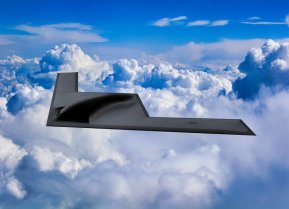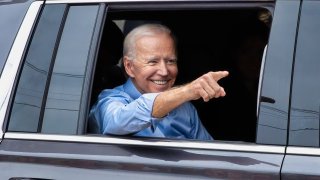North Korea: The Problem Joe Biden Wants to Avoid?
The U.S. and North Korea are beginning from such a low baseline that even small, incremental changes away from brinksmanship would be a big step forward. Unfortunately, the status-quo is likely to prevail throughout the year.
It’s difficult to look at the Korean Peninsula and conclude that Washington’s perennial North Korea problem will be any less relevant at the end of 2024 than it is today.
North Korea: What Happened to Diplomacy?
The previous year was one of the more discouraging on record, a far cry from the time when U.S. and North Korean officials were actually talking to each other about a possible diplomatic agreement on Pyongyang’s nuclear program and the overall state of affairs between their two countries.
North Korean leader Kim Jong-un has doubled down on his nuclear deterrent and ordered yet another expansion of Pyongyang’s arsenal during the 8th Workers’ Party of Korea Central Committee meeting this week.
The International Atomic Energy Agency, which hasn’t had a presence on North Korean soil since it was kicked out in 2009, reports that a light-water reactor at the Yongbyon nuclear complex will likely be operational by this summer, giving Kim another way to churn out plutonium.
Inter-Korean relations are in the doldrums, with former South Korean President Moon Jae-in’s policy of dialogue all but overturned by North Korea’s own actions and South Korean President Yoon Suk Yeol’s aversion to doing the opposite of what his predecessor did. The 2018 inter-Korean military accord designed to limit miscalculations along the Demilitarized Zone is now the byproduct of an old era.
2024, therefore, starts out in an especially depressing mood. South Korea’s National Intelligence Service assesses that the North Koreans will likely make trouble as South Koreans and Americans take to the polls this year. Kim Jong-un is broadcasting his intentions to accelerate North Korea’s military modernization drive, with an emphasis on finalizing the operational deployment of solid-fueled intercontinental ballistic missiles (ICBM), deploying more military satellites and enhancing submarine technology with the eventual goal of pairing nuclear-armed missiles to them (which would provide Pyongyang with another option to hold the U.S., South Korea, and Japan at risk).
President Yoon is well aware of all these developments, has largely given up on diplomacy, is expanding bilateral security ties with Japan, and seeks to integrate Seoul’s conventional capabilities with Washington’s nuclear umbrella.
To be blunt, anybody hoping for a miracle on the Korean Peninsula needs to get their head examined. The U.S. and North Korea are beginning from such a low baseline that even small, incremental changes away from brinksmanship would be a big step forward. Unfortunately, the status quo is likely to prevail throughout the year.
The U.S. will continue to hold exercises with the South Korean and Japanese militaries, both bilaterally and trilaterally, to send Pyongyang a message that its rhetoric and actions are causing more trouble than they’re worth. North Korea, in turn, will cite growing U.S.-South Korea-Japan ties as justification to strengthen its own military capacity, proceed with its missile testing schedule, and deepen its closer partnerships with Russia and China as a counterweight.
Joe Biden Will Play it Safe
Busy with his re-election campaign, President Biden will play it safe with his North Korea strategy rather than take risks, even if playing it safe amounts to his administration mouthing useless platitudes about a North Korean denuclearization scenario that ceased to be realistic more than a decade ago.
The best the United States can hope for in the year ahead is to not make things worse. That means not overreacting to North Korean missile tests, recognizing it’s the far stronger party in the dispute, and understanding that for all his fire-breathing rhetoric, Kim Jong-un is an egomaniac who is nevertheless a rational actor.
About the Author
Daniel R. DePetris is a fellow at Defense Priorities and a syndicated foreign affairs columnist for the Chicago Tribune.
Image Credit: Shutterstock.


